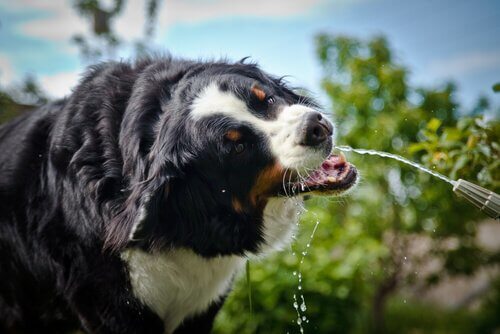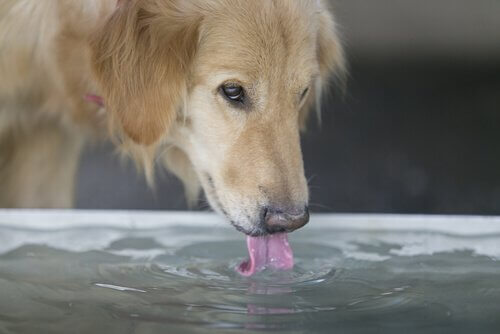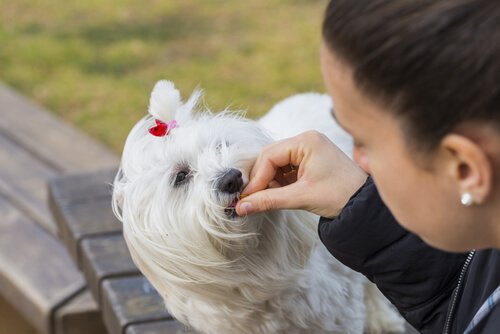Does Your Dog Drink Excessively?

It can be difficult to determine how much water your pet drinks. This is often because they probably spill a large part of it every time they lap! So, does your dog drink excessively? We’ll look into this in detail in this article.
How much water should a dog drink?
In most cases, dogs require from 1 to 1.7 ounces of water per pound of body weight per day. This may seem like a lot, however, they don’t need to get all their liquid needs in the form of water. They can also obtain fluids from eating certain foods.

During the lactation stage, dogs mainly drink milk. But if they’re active dogs, then offer them water in addition to the milk.
It’s hard enough for us humans to drink the water our body requires every day, so it’s not surprising that we can easily neglect our pet’s drinking needs. But if we keep in mind that liquids aid in the prevention of diseases, and promote well-being overall, then, perhaps, we’ll pay more attention to our hydration requirements.
Not only does a dog’s weight determine how much water they should drink and when they’re thirsty. Food is directly tied to thirst as well. If a dog eats dry food, they’ll probably need more water than if they eat canned food. If they eat a lot of salty food then they’ll require more liquids too.
Age has a lot to do with thirst also. Puppies require ½ a cup of water every two hours and you have to remind them to drink, especially if they’re active.
If you have a highly energetic dog that goes out a few times a day and plays with other animals, then they’ll need to drink more water. Furthermore, some medications and treatments could make your dog drink excessively.
Why does my dog drink excessively?
When there’s water around, a dog drinks it as if they were in the middle of the desert. When you fill their dish with water, they gulp it down and finish it in a matter of seconds and wait for more. There could be several reasons why dogs drink excessively. Here are some of them:
Dehydration
During hot summer days, animals, like people, need to drink more water. Moreover, if the animal hasn’t been around a source of liquid in several hours, then perhaps they’re dehydrated. The symptoms are dry tongue and gums, lethargy, gasping and drooling.
Be careful in any of the above cases, because if you give them a large container full of water they’ll drink it quickly and may get ill or vomit as a consequence. The best thing to do is to offer little amounts at a time.
Diseases
Something else that makes your dog drink excessively is when something in their body isn’t working properly. In many instances, excessive drinking is due to imbalances in the kidneys or the liver.
It may also be caused by a deficit in blood calcium levels. Other illnesses that lead to excessive drinking are Cushing’s syndrome, cancer, infection, fever, and diarrhea.
In the particular case of diabetes, in addition to drinking more water, your dog will pee more often and will be hungrier. As a result, they’ll eat more and gain weight and perhaps even become obese. Moreover, as the disease progresses, the dog will be thirstier and thirstier.
Medication

Anti-inflammatories are among the drugs that dehydrate dogs the most. They’re often prescribed to treat asthma, allergies, intestinal inflammation, heart failure, and seizures.
Diet
As we mentioned before, a dog’s diet can be a factor in their intake of fluids. Pay attention to the ingredients in the food you give to your dog, as many brands have very low standards and bad quality, and might even add salt and colorants (which contain sodium) to the food.